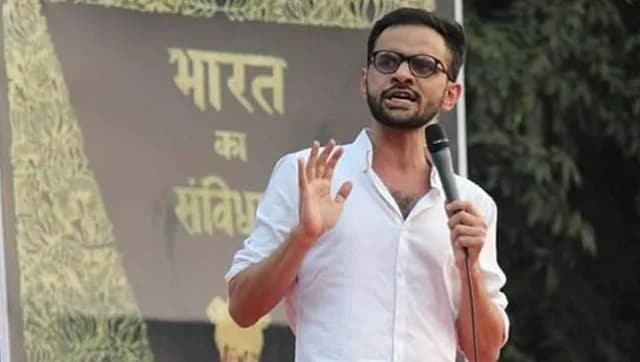The court was hearing a plea filed by Delhi riots accused Umar Khalid, who said the media reports have quoted from his alleged disclosure statement to show that he has confessed to his involvement in the riots and it was prejudicing his right to a fair trial

File photo of Umar Khalid. Facebook
New Delhi: “Presumption of innocence” should not be destroyed at the very threshold of justice process through media trial, a court said here on Friday on a plea moved by former JNU student leader Umar Khalid alleging vicious media campaign against him in a north-east Delhi riots case.
The court said it hoped that the media would follow “self regulation techniques” while reporting on a case pending investigation or trail.
“Self regulation is the best mode of regulation,” Chief Metropolitan Magistrate Dinesh Kumar said.
“While the press and the news media was described as the Fourth Estate in a democratic society, there existed a risk of prejudice being caused if they failed to do their duty with care and caution and one of such risks was that of ‘media trial’,” he said.
The plea moved by Khalid has claimed that the media reports have quoted from his alleged disclosure statement to show that he has confessed to his involvement in the riots and it was prejudicing his right to a fair trial.
Khalid had told the court that below the alleged disclosure statement, which was part of the charge sheet filed against him, it was written “refused to sign” by the accused.
The court said in its order, “The press and news media is described as the Fourth Estate in a democratic society. It has been regarded as one of the sentinels guarding the existence of the society. The most important role of the media is its ability to mobilize the thinking process of a large number of the population.”
“However, there exists a risk of prejudice being caused if the press and media fail to do their duty with care and caution. One of such risks is that of ‘Media Trial’. One of the basic principles of criminal jurisprudence is presumption of innocence.”
“This should not be destroyed at the very threshold through the process of media trial. Protection of such presumption is essential for maintenance of the dignity of the courts and is one of the cardinal principles of the rule of law in a free democratic country,” the court said.
It said the news reports have only highlighted that accused Khalid had confessed his involvement in the riots but none of the news items made a clarification to its readers/viewers that such a statement, even if actually made, could not be used by the prosecution as evidence.
It further rebuked the media saying a reporter should have such basic knowledge of law because readers/ viewers consider news items as true without verifying the facts.
“Further, the general public might not be aware of the law as above mentioned. Therefore, it is the duty of the Press and Media to inform and educate its readers and viewers about all the relevant facts and circumstances of a news item published or shown on the News channel,” the court said.
“Any act of the Media which might deprive the accused of his dignity would have an adverse effect on his rights guaranteed under the Constitution and therefore, any news item should be published after verifying and clarifying all the facts,” it added.
The court noted that one of the news items started with the words “Radical Islamist and Anti Hindu Delhi Riots accused Umar Khalid” and it portrayed the entire Delhi riots as anti-Hindu riots, but all the communities felt the consequences.
“However, in fact this does not appear to be the case, as all the communities have felt the consequences of those riots. Such news items might show to the public at large that accused Umar Khalid had in fact confessed/ admitted his role in Delhi riots. However, it is the duty of the judicial system to decide a case on merits after trial.
“Considering the fact that the accused did not make any specific prayer in the application, I hope that the reporters would use self regulation techniques while publishing or showing a news item related to a case pending investigation or trial so that no prejudice is caused to any accused or any other party. Self regulation is the best mode of regulation,: the judge noted.
Khalid had alleged that there was a deliberate design by the media and a concerted effort to prejudice opinion against him in the case related to riots in Khajuri Khas area.
He alleged that the charge sheet filed against him was leaked to the media even before the court took cognisance of it.
Khalid had said the alleged adversarial media reports, which painted him as guilty, were continuing and caused him deep distress.
The police had stated in their reply to the application that the charge sheet was not leaked by them to the media and no press release or media briefing had been done by the Delhi police at the time or after filing of the charge sheet.
Communal violence had broken out in northeast Delhi on February 24 last year after clashes between citizenship law CAA supporters and protesters spiralled out of control leaving at least 53 people dead and around 200 injured.
Find latest and upcoming tech gadgets online on Tech2 Gadgets. Get technology news, gadgets reviews & ratings. Popular gadgets including laptop, tablet and mobile specifications, features, prices, comparison.
